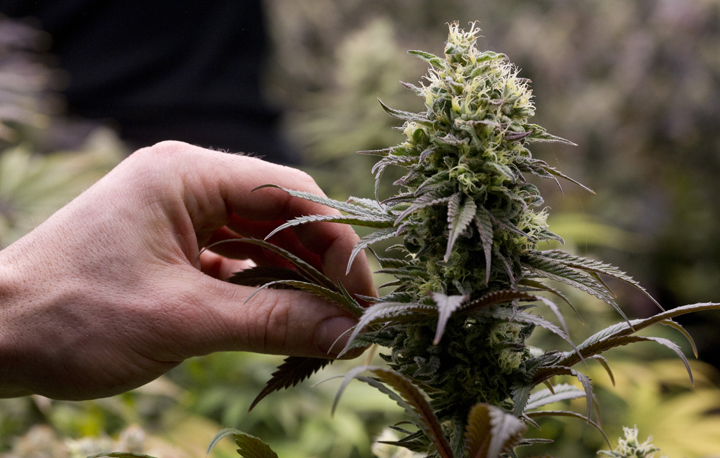Tera Ollila was smiling when she became one of the first people to legally buy marijuana in Juneau.
When it came time to talk to a reporter, her smile faded.
“Do you have to use my name?” she asked before granting permission.
Ollila, like some of those waiting in line Wednesday and Friday at Rainforest Farms, is a state employee, and while she believed state regulations allowed her to buy marijuana without threatening her job, she wasn’t 100 percent sure.
The state of Alaska’s official drug-free workplace policy, last updated in 2012 (two years before voters legalized marijuana), states: “Classified employees and appointed officials are prohibited from engaging in the improper or unlawful use manufacture, distribution, dispensing, possession, or use of alcohol or a controlled substance on state property, in the workplace or while in performance of official duties.”
In other words, no using marijuana on the job and don’t be high on the job, including on a work-related trip.
Otherwise, as long as you’re not intoxicated at work, what happens at home stays at home.
There are a few exceptions are for what the state calls “safety-sensitive positions” regulated by the federal government. Those include (but are not limited to) many ferry system workers and people with commercial driver’s licenses.
“Some state employees in safety sensitive positions are prohibited from having THC in their system,” said Division of Personnel and Labor Relations’ Nancy Sutch in a statement provided by a Department of Administration spokeswoman. “Employees should contact their HR representative if they’re unsure of their status.”
Many state departments require pre-employment drug testing, and if someone is suspected of being intoxicated on the job, the state can ask an employee to take a drug test. The exact procedures for that, and the chances of random drug screening, vary by position.
Under the regulations approved by the Alaska Police Standards Council, corrections officers, parole officers, police officers and probation officers can’t use marijuana. If they do, they risk having their police certificate revoked by the council.
The same standard doesn’t apply for Village Public Safety Officers — their regulations contain no restriction against using marijuana in off-hours, but they have to refrain from using marijuana in the year immediately before they are hired.
Rainforest Farms last week became the first marijuana store to open in Juneau, and a second will come before the Juneau Planning Commission on Wednesday. A third is awaiting approval by the state licensing board, and entrepreneurs have announced plans to open five more in the capital city.
For these businesses and prospective businesses, state rules affecting marijuana use aren’t an abstract problem. In 2015, according to figures from the Juneau Economic Development Council and Rain Coast Data, 4,097 Juneauites were employed by the state. Another 2,042 were employed by local and tribal governments (including the hospital, school system, airport and harbors), and 693 were employed by the federal government. That’s a substantial fraction of the 17,930 people who have jobs here.
The federal government figures do not include uniformed Coast Guardsmen and women, but uniformed or not, federal workers are prohibited from using marijuana, even in their off hours.
That’s not the case for employees of the City and Borough of Juneau, who operate under rules more like those of the state. The CBJ’s drug-free workplace policy was last updated on Aug. 13, 1990, and states that anyone using, intoxicated by or possessing “controlled substances in the work environment or during working hours is subject to immediate disciplinary action up to and including dismissal.”
It doesn’t include any notice barring employees from home use.
Dallas Hargrave, the city’s human resources director, said the city’s policies on marijuana are roughly the same as they are with alcohol.
If someone had a few drinks at lunch and came back to work intoxicated, they’d get in trouble. If someone used marijuana before work or during work and was high, they’d get in trouble.
As for the rest of it?
“As long as they’re not impaired at work, what they do on their off time is not relevant to us,” Hargrave said.

